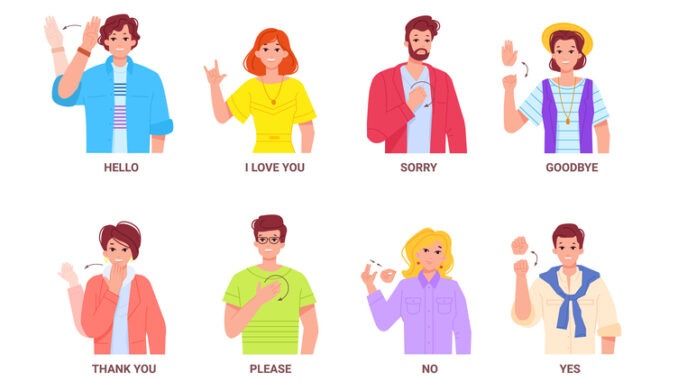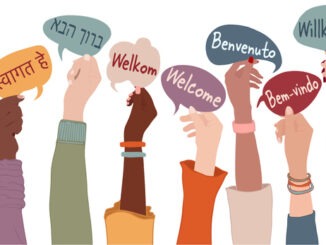In a groundbreaking move, the UK government has declared that British Sign Language (BSL) will be offered as a GCSE subject in England starting from September 2025. This monumental decision aims to make the qualification accessible to all pupils, fostering inclusivity and equipping young minds with a valuable life skill
CREDIT: This is an edited version of an article that originally appeared on BBC News
Education Secretary, Gillian Keegan, lauds the move, stating that BSL as a GCSE will “open so many doors for young people.” The government is committed to ensuring that students delve into the rich culture and history of British Sign Language, simultaneously empowering them with a proficiency in approximately 1,000 signs.
The official recognition of BSL as a language in the UK last year marked a historic moment, culminating with the passage of the British Sign Language Act. Susan Daniels, Chief Executive of the National Deaf Children’s Society, expresses her delight at the publication of the course content after a decade-long campaign, emphasising that the GCSE will celebrate the unique culture and history of British Sign Language.
Daniel Jillings’ journey
The genesis of this decision can be traced back to the impassioned advocacy of 17-year-old Daniel Jillings. Born profoundly deaf, without a cochlea, Daniel’s decade-long campaign has borne fruit. He asserts that the introduction of BSL as a GCSE is “a powerful step to equality,” underlining its significance in fostering a more inclusive educational environment.
Implementation challenges for schools
As the announcement sets the stage for a transformative educational landscape, schools now face the challenge of incorporating BSL into their curriculum. Geoff Barton, General Secretary of the Association of School and College Leaders, expresses full support but acknowledges the practical constraints, citing staffing, financial, and time pressures on schools.
Sue Denny, President of the British Association of Teachers of the Deaf, advocates for training opportunities for both deaf and hearing individuals fluent in BSL to teach the subject. She underscores the importance of sustainable succession planning to recruit and retain qualified BSL teachers.
The BSL GCSE not only adds a new dimension to the academic repertoire but also fosters a sense of belonging and understanding among students. As the curriculum undergoes scrutiny by the exams regulator Ofqual, the education community awaits the implementation of this step towards a more inclusive and diverse educational experience for all.





Be the first to comment